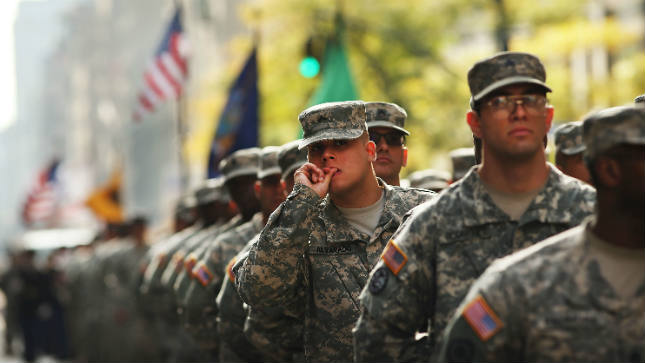The House passed legislation on Tuesday to provide mental health care for veterans who would otherwise be ineligible because they received an other-than-honorable discharge from the military.
Passage of the measure, which came by voice vote, comes two days after a shooting at a Texas church by a gunman who had a record of mental illness while he served in the Air Force. The suspect was forced out of the military after a bad conduct discharge.
Under current law, certain veterans who receive an other-than-honorable discharge are not eligible for federal benefits like mental health care unless the Department of Veterans Affairs (VA) determines otherwise.
{mosads}
The Government Accountability Office found in a study published in May that more than 13,000 service members separated for misconduct and diagnosed with post-traumatic stress disorder (PTSD) or another condition had other-than-honorable discharges between 2011 and 2015.
Members of the U.S. military can be discharged in five ways: honorable, general, other than honorable, bad conduct and dishonorable. Lawmakers said the other-than-honorable discharges are often used for service members who engaged in minor misconduct, which can be a result of PTSD.
Rep. Gus Bilirakis (R-Fla.), the vice chairman of the House Veterans’ Affairs Committee, cited statistics from the Medal of Honor Society finding that at least eight Medal of Honor recipients received other-than-honorable discharges.
“As a Marine Corps combat veteran, I like to live by the rule we never leave anyone behind,” said Rep. Mike Coffman (R-Colo.), the legislation’s author.
“Unfortunately, the military routinely used the other-than-honorable discharge to rid itself of combat veterans who were designated as having disciplinary problems and who often had documented medical histories of PTSD, rather than providing them with the treatment and rehabilitation they so desperately needed.”
Coffman’s bill would ensure that the VA provides initial mental health assessments and mental health-care services to former military service members discharged under conditions that were not honorable who participated in combat operations or experienced sexual abuse.
The legislation would not apply to veterans discharged dishonorably or with bad conduct.
The VA could provide mental health services at outside facilities if receiving them in places run by the department would be clinically inadvisable or if an individual is too far away from the nearest VA facility.
The shooting at a church in Sutherland Springs, Texas, on Sunday has led to renewed discussion among lawmakers about the role of mental health.
According to multiple reports, the gunman, identified as 26-year-old Devin Kelley, escaped from a psychiatric hospital after he had been charged in a military court with assaulting his wife and baby stepson. He later pleaded guilty to the charges.
A report filed by El Paso police officers said that Kelley had been described as suffering from mental disorders, tried to sneak firearms onto the Air Force base where he was stationed and attempted to carry out death threats against his superiors.
Kelley was later discharged from the Air Force for bad conduct.
Current law prohibits people convicted of domestic violence from buying or owning firearms. Kelley’s record made him eligible to buy guns, but the Air Force did not submit his criminal history to the federal background check system.
The House considered Coffman’s bill this week as part of a package of legislation ahead of the Veterans Day holiday on Saturday. Lawmakers also approved bills to authorize VA health care providers to practice telemedicine across state lines and to warn veterans of potential scams when applying for pension benefits.
